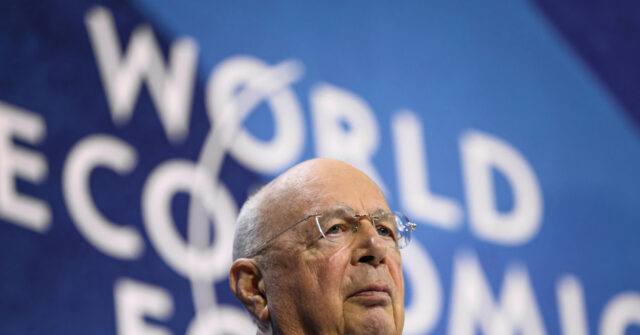Arch-globalist and head of the World Economic Forum Klaus Schwab has reportedly informed staff that he will be stepping down as WEF executive chairman.
The 86-year-old self-appointed Sultan of Davos sent an email to staff on Tuesday announcing that he will no longer run the world’s most prominent globalist advocacy group although he will likely stay on in some non-executive role, the website Semafor claimed.
A WEF spokesman told the website that the Forum will be changing its governance structure and that as a result, Schwab “will transition from Executive Chairman to Chairman of the Board of Trustees” by the start of next year.
Although Schwab has not officially named a successor, the Financial Times reported that former Norwegian Foreign Minister and current WEF President Børge Brende will take over the top job in Davos.
Last year, the POLITICO website reported that, according to 29 WEF insiders, Schwab is treating the organisation like a “family heirloom”, indicating that Schwab may have sought to appoint one of his two children, Nicole and Olivier — both of whom already serve in high-ranking positions within the WEF — as a next executive.
The final decision will reportedly need to be cleared by the government of Switzerland, which hosts the group’s annual Davos meeting. The reported move by Schwab to step down from his leadership role in the group comes despite his previous claims that he wanted to stay in power and run the WEF for decades to come.
A German-born economist, Schwab started the World Economic Forum in 1971 with $6,000 in startup funds. Now a $390 million per year business, the Forum sees world leaders, top-flight businessmen, and alleged thought leaders descend — often by private jet, ironically, given the frequent focus on climate change — to the Swiss ski resort town of Davos where they bend the metaphorical knee to Schwab every year.
Klaus Schwab Tells Global Leaders to Collaborate for World Governancehttps://t.co/bZ0zFT7xci
— Breitbart London (@BreitbartLondon) March 31, 2022
Under his leadership, the WEF has become one of the leading forces behind numerous globalist projects, such as central bank digital currencies, transhumanism, artificial intelligence, world governance, veganism, carbon taxes, tech censorship, and a radical restructuring of the global economy, among others.
During the Chinese coronavirus crisis, Schwab infamously declared that it represented an opportunity to enact his notion of a “Great Reset“, demanding that the world “act jointly and swiftly to revamp all aspects of our societies and economies”.
Key to his notion of a Great Reset is the implementation of the deceptively-titled and socialist-adjacent ‘stakeholder capitalism’ — a term coined by the WEF chief — in which there is “shared prosperity and equitable growth, based on sustainable production and consumption.”
Infamously, the WEF produced a video predicting that people would “own nothing and be happy“, sparking public outrage, with critics claiming that Davos was seeking to end private property by extending the subscriber-based economy to all walks of life.
Schwab has also popularised the concept of a “Fourth Industrial Revolution” which will see emerging technologies transform how humanity interacts with and understands the world. The WEF chairman has pointed to Artificial Intelligence as being central to this vision, saying last year that those who control AI will have the ability to become “masters of the world”.
The World Economic Forum founder has pointed to Communist China as a likely “role model” for many countries in the “systemic transformation of the world”, saying in 2022 that the “Chinese model is certainly a very attractive model for quite a number of countries.”
Appearing at the World Government Summit in Dubai this week, arch-globalist Klaus Schwab said “life in 10 years from now will be completely different… and who masters [AI] technologies, in some way, will be the masters of the world” https://t.co/Dsyd774Lki
— Breitbart London (@BreitbartLondon) February 17, 2023
Follow Kurt Zindulka on X: Follow @KurtZindulka or e-mail to: kzindulka@breitbart.com


